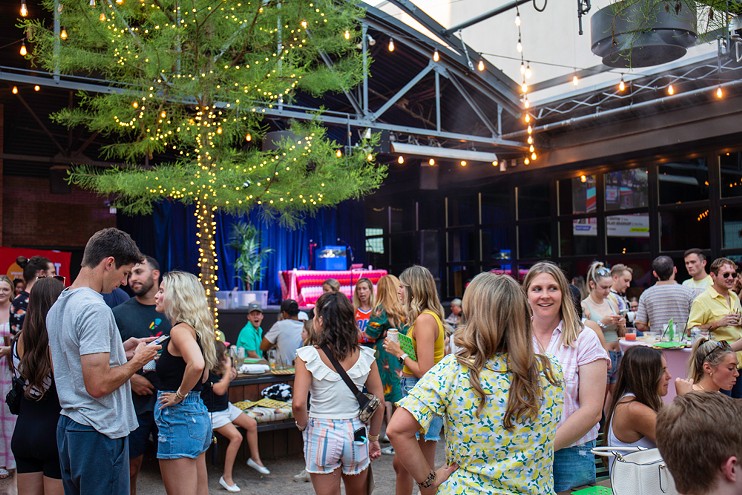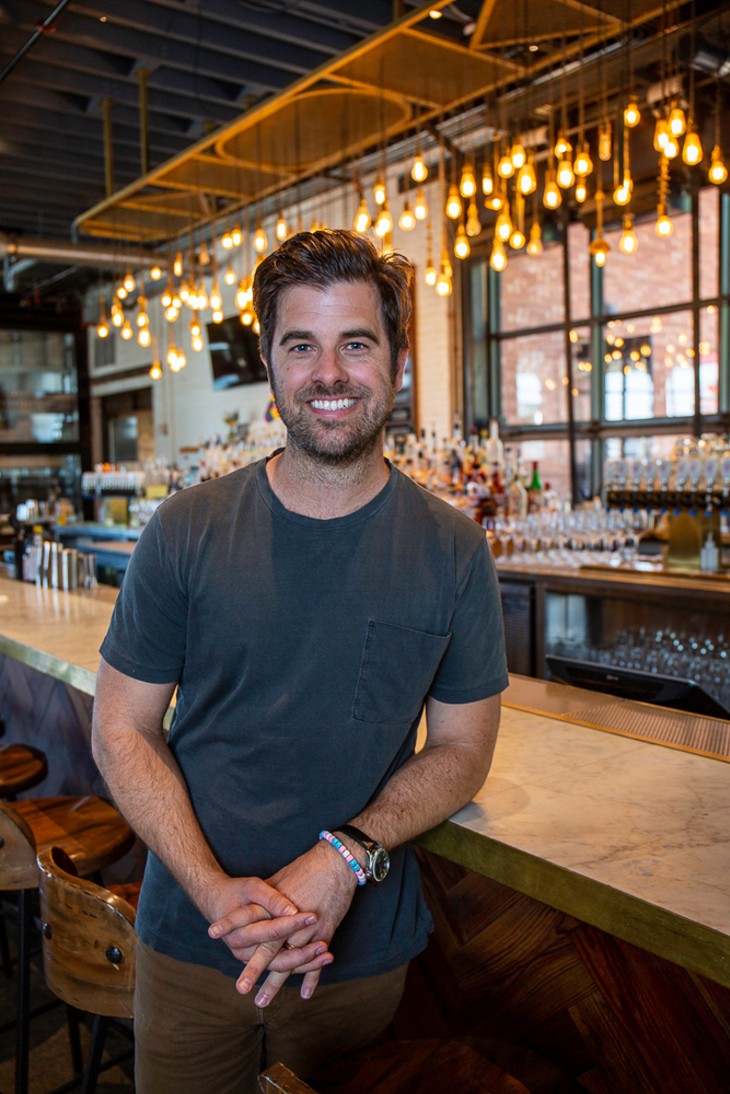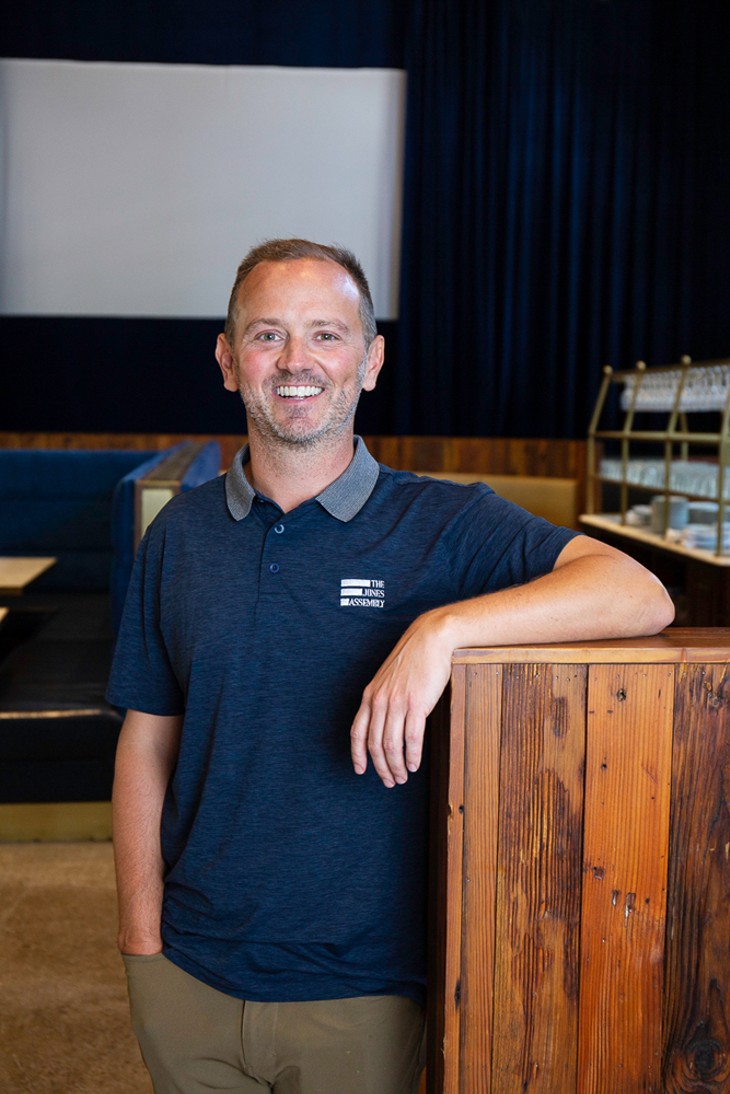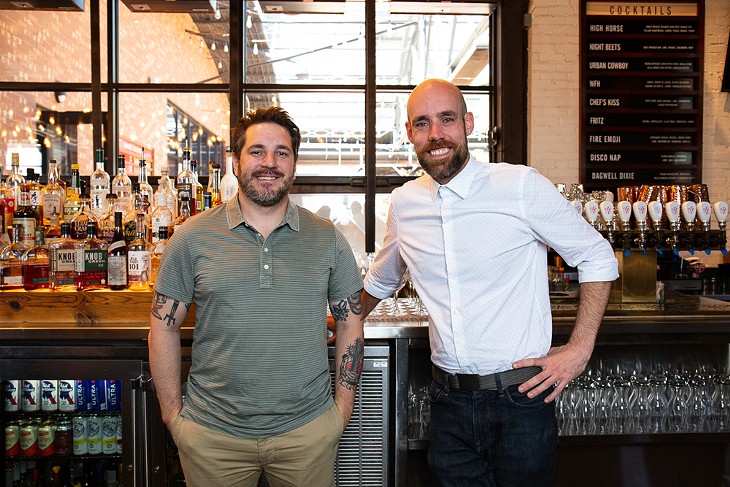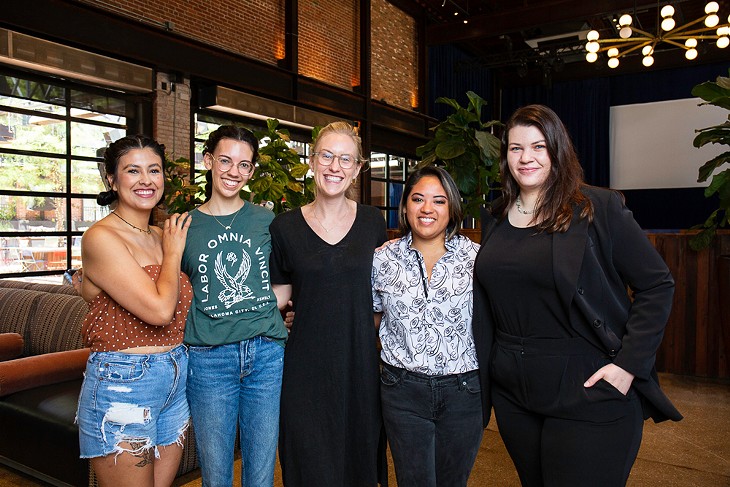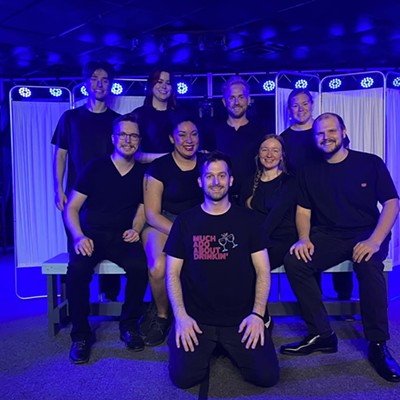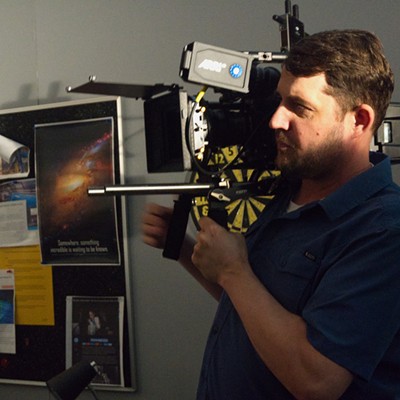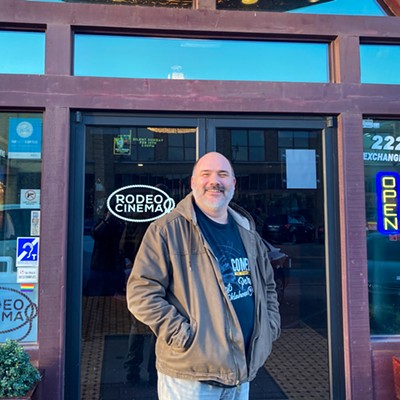It’s difficult to accurately describe The Jones Assembly.
Is it a restaurant? Yes. A bar? That too. A live music venue as well, one that hosts cozy local shows as well as some of the biggest acts in music or ones that will be soon.
The concept is a slew of ideas smashed together, none of which should work in tandem with the others but somehow it all works out.
Take the acoustics for example. There’s no reason why a cement, glass and metal building should sound good. But it does. And why the hell are a bunch of twenty- and thirty-somethings packing out the patio for — of all things — bingo nights? Who knows? But they are.
“The Jones is our love letter to the city,” co-founder Graham Colton said just shy of the venue’s fifth birthday.
On July 9, The Jones Assembly will be celebrating the elements that go into making the space what it is with their All Day Frose B-Day Partay from 10 a.m. to last call and with a free show featuring Kiley Josey and Kale Isaac among others.
The seed for the idea for what the venue would become was sown over the course of conversations that occurred in Texas two decades ago.
“Long before we both decided to move back to Oklahoma City, separately, we were talking. We were living in Dallas at the same time. I was attending Southern Methodist University and trying to be a musician and Brian had just graduated SMU,” Colton said.
“We were all seeing concerts nearly every night and, I think it’s fair to say, that was a huge inspiration for us. We’d always just sort of romanticize about having a place of our own.”
“I feel like any night of the week in Dallas, during that time frame, which was the early 2000s, you could go to Trees, Gypsy Tea Room, Dada. I mean, any number of places you could find live music every night in Greenville, Deep Ellum,” co-founder Brian Bogert said.
“It was just so easy, and so when I moved back here, it was like culture shock because I lived and died by the Gazette’s live music listings and it’d be like three people are playing somewhere throughout the city and then maybe once a month, there was a national name that was coming through.”
Bogert — a management consultant at the time — was just sinking his teeth into the logistical arrangements that became the foundation for The Social Order, his restaurant collective, when Colton and his band were asked to open for Counting Crows in 2002.
“I went on tour off and on for 10 years and he became the restaurateur he is today,” Colton said.
While Colton hit the road, Bogert solidified the Oklahoma franchise rights to a favorite college spot — Texadelphia.
“I learned restaurant operations, ownership, management, through that concept basically by making every wrong decision twice. That really was the starting point which built the foundation for a lot of things to come. Directly after that, we opened up Seven47, which was a huge campus staple for 15 years and just a very, very high volume bar. So that’s kind of where we learned to be able to execute high-volume bar service at a level that really hadn’t been seen in Oklahoma and from then on, it was just about a restaurant a year until we opened this place,” Bogert said.
Colton wanted live music but wasn’t willing to settle for just that.
“We grew up loving being crammed into clubs and going to see our favorite bands. I think it’s fair to say we saw a trend that people wanted more and we could deliver more. We wanted the ability to bring back all these things that we had experienced in our travels and just felt like we were the guys to do it. It wasn’t just, ‘Oh, we’d like to also do food’ or, ‘We’d also like to do events.’ We really wanted to dream as big as possible and to offer our city this experiential, multifaceted entertainment,” Colton said.
Colton and Bogert scouted sites with Fred Hall of Hall Capital.
“Nothing felt right for this concept until the manufacturing process ceased and we were able to take a look at the two warehouse buildings. The space just felt perfect for what we were wanting to do,” Bogert said.
“Graham and Brian are extraordinarily creative and inspirational entrepreneurs who also love their hometown – Oklahoma City. We know the cost to preserve the warehouses is more expensive than starting anew, but we all loved the vibe and character this concept would create in these buildings. At the end of the day, it is the kind of venture only local adventurers with vivid dreams could pursue with such enthusiasm,” Hall said.
They contracted with Tulsa architect James Boswell, who remodeled both Cain’s Ballroom and what is now called the Tulsa Theatre (formerly Brady Theatre) to convert an old manikin factory on the western edge of Film Row into The Jones Assembly.
Instead of tossing out everything that was inside the building, they removed the second floor of the building and used the reclaimed wood to build the bar, booths and millwork. The bricks removed from the building were used for pathways on the patio and the slate roof was repurposed as flooring.
“At that point in time, we were like, ‘Okay, there’s not really a patio culture here because nobody wants to sit outside and get blown away … We have an opportunity to have a building with four walls and just take the roof off and make that patio actually provide protection from the elements. All of these little pieces evolved and then we wanted it to be an indoor/outdoor stage, so we got really creative with the nanowalls and how we positioned a third of the stage outside and then the other two thirds of the stage inside, so when this place is full with 1,700 people, you’re getting that experience from every corner of the room,” Bogert said.
Since opening in 2017, The Jones Assembly has hosted more than 90 shows — with in excess of 100,000 tickets sold — with acts ranging from Willie Nelson to Vince Staples to Spoon.
Additionally, Colton played his 20th anniversary homecoming concert earlier this year with a setlist that highlighted the shift in artistic style he’s experienced since parting with a major record label and launching The Jones Assembly.
“I think the most unintentional and important thing that happened is, this place came along and I was able to just like, pivot, stop, exhale, whatever you want to say, and it just allowed me to live. Discover that I was good at something else. I still had this creative energy and have been able to then just return to music on totally different terms. I was waking up every day and making music to pay the mortgage. That’s not how you want to make art. And so then this place comes along, and I get to just see amazing things and work with exciting people and it all played into growing up. And music’s fun again.”
And while music is Colton’s passion, food and drink service is Bogert’s bread and butter. The process at Jones is endless, with someone working inside the building 24 hours a day. The head baker arrives at 4 a.m., which is about the time the bar manager is on the way out the door.
The Jones Assembly seats 225 people in its capacity as a restaurant, serving a refined regional cuisine frequently supplied by local food companies.
They have two menus for the year. The spring menu starts in April and runs until October when the fall and winter menu takes over.
“I would say 60 percent of our menu is core and it’s on both seasonal menus and then about 40 percent of that we change every time,” Bogert said.
For those wondering where all the tables go when the restaurant side closes down for performances, the answer is that a moving crew comes in to put it into compartments under the stage.
“It’s a transformation that I think very few people in the outside community ever get to see or hear about or think about, because it’s just all set up by the time we open,” Bogert said.
They also factored in a way to serve food on co
ncert nights when there’s limited seating.
“We actually built windows on the back side of this kitchen and so we set it up where you walk up to the window and you order. We have kind of an elevated state fair food concert night menu,” he said.
Scott Marsh is a partner and The Jones Assembly’s director of operations. He and Graham met when he opened The Criterion and Savings and Loan, a cocktail bar that was formerly inside Tower Theatre.
“I had a weird background of high-end cocktails and high-volume bar and so I came here and looked at the place and Graham asked me if I wanted to help consult on the music side,” Marsh said.
“I happened to be producing a festival in South Carolina right after that in Charleston and called Graham and just couldn’t stop thinking about the place and just said, ‘Is there a bigger role? And he said, ‘I thought you’d never ask.’”
Marsh and Colton are responsible for selecting the acts to perform at the venue.
“He and I work really closely as far as who we think we should bring, who we think is up and coming, who we think is going to be next, who we think is bubbling to the surface. A lot of time that starts a year, year and a half, two years before we think they’re going to be there. It kind of works both ways. We kind of bounce stuff off each other. ‘Have you heard of this person? What do you think about this? Do you think we can pull this off?’ And so on. Sometimes we just swing for things we didn’t think could happen, like The Pixies,” Marsh said.
Charles Friedrichs is the lead bartender. He came over from Seven47 in Norman and graduated from law school in 2012.
“Scott and I work together a lot on pretty much all of our cocktails. I don’t think we really do any anymore that we’re not working on together. From developing flavor profiles, putting in the back-end work on our prep team, getting our menus out to our team. I kind of do anything that’s bar-related. Just whatever needs to be done,” he said.
“Charles is downplaying this. Charles was integral in the creation of The Jones Assembly. He created the entirety of the bar program from the start. He’s owned that space,” Marsh said.
“I think my style in cocktails is just layered flavors, so any of our cocktails that we work on, we want different flavors that hit you at different times,” Friedrichs said.
Since opening, The Jones Assembly team has crafted about 125 cocktails.
Combine the food, drinks, live music and special events and you have an enormous operation with countless moving parts that takes about 125 people to pull off, a number that did not dwindle due to COVID-19. They also now offer paid time off for hourly employees and have a 401K program.
“These are things that we thought of during the pandemic. How can we better take care of our people? How can we kind of break down an industry that was broken and find ways within our group to make it better? … In five years, we’ve employed thousands and thousands of people and trained them the right way to where anywhere they go in the country, they have the tools to be at the top of the hospitality [industry],” Bogert said.
“No one job can be done without your peers and to think that you’re alone on an island is kind of a silly thought. It’s a silly idea because there’s just so many people around you to ask for help and to dive in with you and run through that fire,” Isabelle Young, event manager, said.
“I think it’s like that meme, the fire meme where you say everything’s fine, but in reality it’s not. And then towards the end of the night, you’re like, ‘Mission accomplished,’” server Stephanie Flores said.

